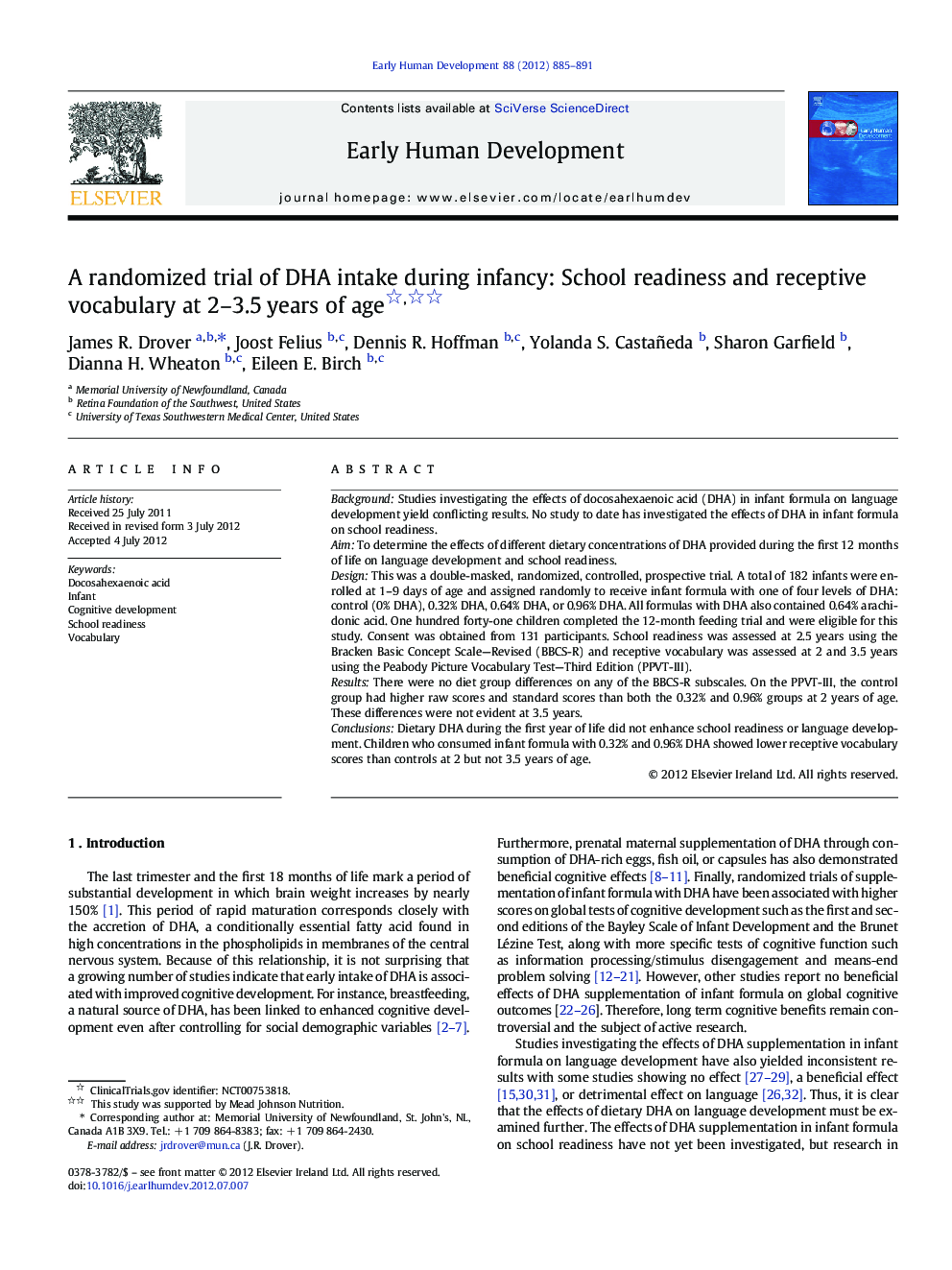| Article ID | Journal | Published Year | Pages | File Type |
|---|---|---|---|---|
| 3918330 | Early Human Development | 2012 | 7 Pages |
BackgroundStudies investigating the effects of docosahexaenoic acid (DHA) in infant formula on language development yield conflicting results. No study to date has investigated the effects of DHA in infant formula on school readiness.AimTo determine the effects of different dietary concentrations of DHA provided during the first 12 months of life on language development and school readiness.DesignThis was a double-masked, randomized, controlled, prospective trial. A total of 182 infants were enrolled at 1–9 days of age and assigned randomly to receive infant formula with one of four levels of DHA: control (0% DHA), 0.32% DHA, 0.64% DHA, or 0.96% DHA. All formulas with DHA also contained 0.64% arachidonic acid. One hundred forty-one children completed the 12-month feeding trial and were eligible for this study. Consent was obtained from 131 participants. School readiness was assessed at 2.5 years using the Bracken Basic Concept Scale—Revised (BBCS-R) and receptive vocabulary was assessed at 2 and 3.5 years using the Peabody Picture Vocabulary Test—Third Edition (PPVT-III).ResultsThere were no diet group differences on any of the BBCS-R subscales. On the PPVT-III, the control group had higher raw scores and standard scores than both the 0.32% and 0.96% groups at 2 years of age. These differences were not evident at 3.5 years.ConclusionsDietary DHA during the first year of life did not enhance school readiness or language development. Children who consumed infant formula with 0.32% and 0.96% DHA showed lower receptive vocabulary scores than controls at 2 but not 3.5 years of age.
